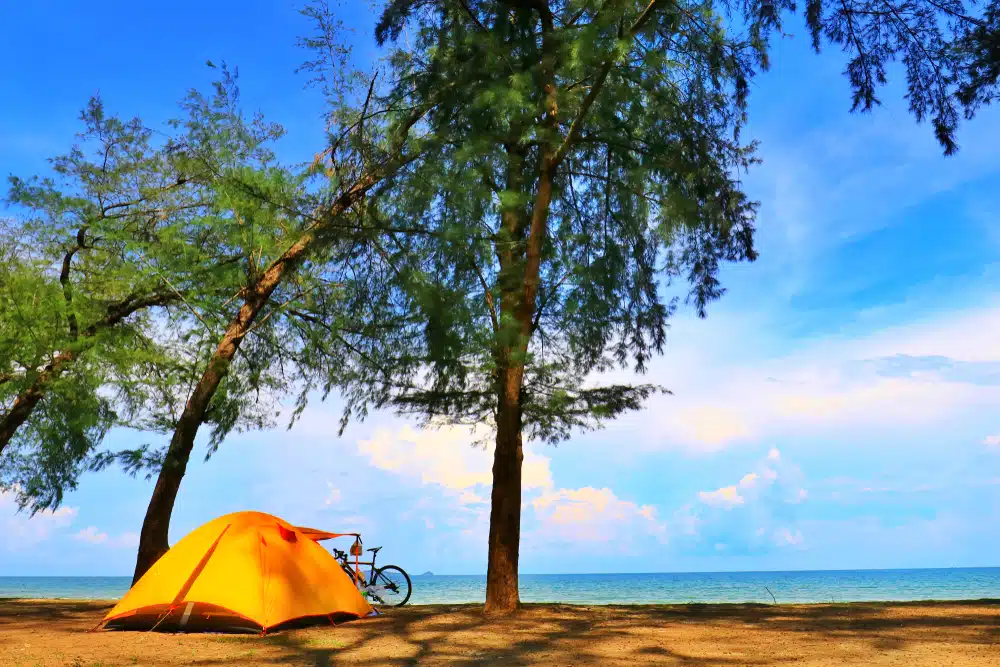Cornwall Council and Plymouth City Council have chosen not to renew a licence permitting use of the Sandway Campsite near Kingsand and Cawsand, citing long-standing safety concerns over potential flooding and landslips.
The decision could bring an end to nearly a century of seasonal camping at the historic site, which has sparked community pushback and a petition urging the council to reconsider.
The Sandway Campsite, located on Sandway Beach on the Rame Peninsula, has been in use since the 1930s when fishermen first set up bell tents.
These were later replaced by wooden huts, and since 2009, the site has operated under a 15-year lease agreement with the Sandway Campsite Association for holiday use. That lease expired in 2024.
According to a joint statement from the councils, campers were instructed last year to leave the site due to “risks of immediate danger/death” from flooding and landslips.
A 2013 Cornwall Council report had already raised concerns over the stability of the surrounding cliff. Landslides have reportedly occurred in the years since, including in the months leading up to March 2024.
The councils emphasized that the campsite has “no sufficient” escape route in the event of high tides or storm surges.
“If the tide rises high enough and sweeps over the tents, then the beach could well become flooded, and the occupants would be trapped. That risk would be even greater if flooding happened overnight whilst the occupants were asleep,” the joint statement read.
Despite these warnings, local councillor Kate Ewert, who represents the Rame Peninsula on Cornwall Council, has challenged the decision. “I am gutted about the state of affairs at Sandway,” she told the BBC.
Ewert argued that while notices had been placed instructing campers to vacate, the site had not been in use this year. She also pointed out that five planning consents were issued over the last 11 years, allowing intermittent use of the site since the original 2013 risk assessment.
Ewert has called for a new, full geological survey to reassess the current state of the land. “I asked for a new full study to be completed,” she said. “It seems a geological expert reviewed the report and referred back to the 2013 report and said the land is unstable, and that’s that.”
A petition launched by Katy Mabin is calling on Cornwall Council to “work actively” to preserve the campsite and avoid issuing eviction notices.
“Losing this beloved site would erase nearly a century of community history and tradition – a detrimental blow not just to camping enthusiasts, but to the very fabric of Kingsand’s identity,” Mabin stated.
The case highlights a familiar tension in outdoor hospitality between preserving traditional recreational uses and ensuring safety in light of evolving environmental risks.
For business owners in the sector, it underscores the importance of maintaining up-to-date geological assessments and clear emergency planning, especially in coastal or high-risk areas.
With climate impacts increasing the frequency of extreme weather events, site safety can directly affect the long-term viability of operations.The Rame Peninsula recently gained public attention after being featured in The Salt Path and its film adaptation, a detail that may contribute to continued visitor interest in the area regardless of the site’s future.


